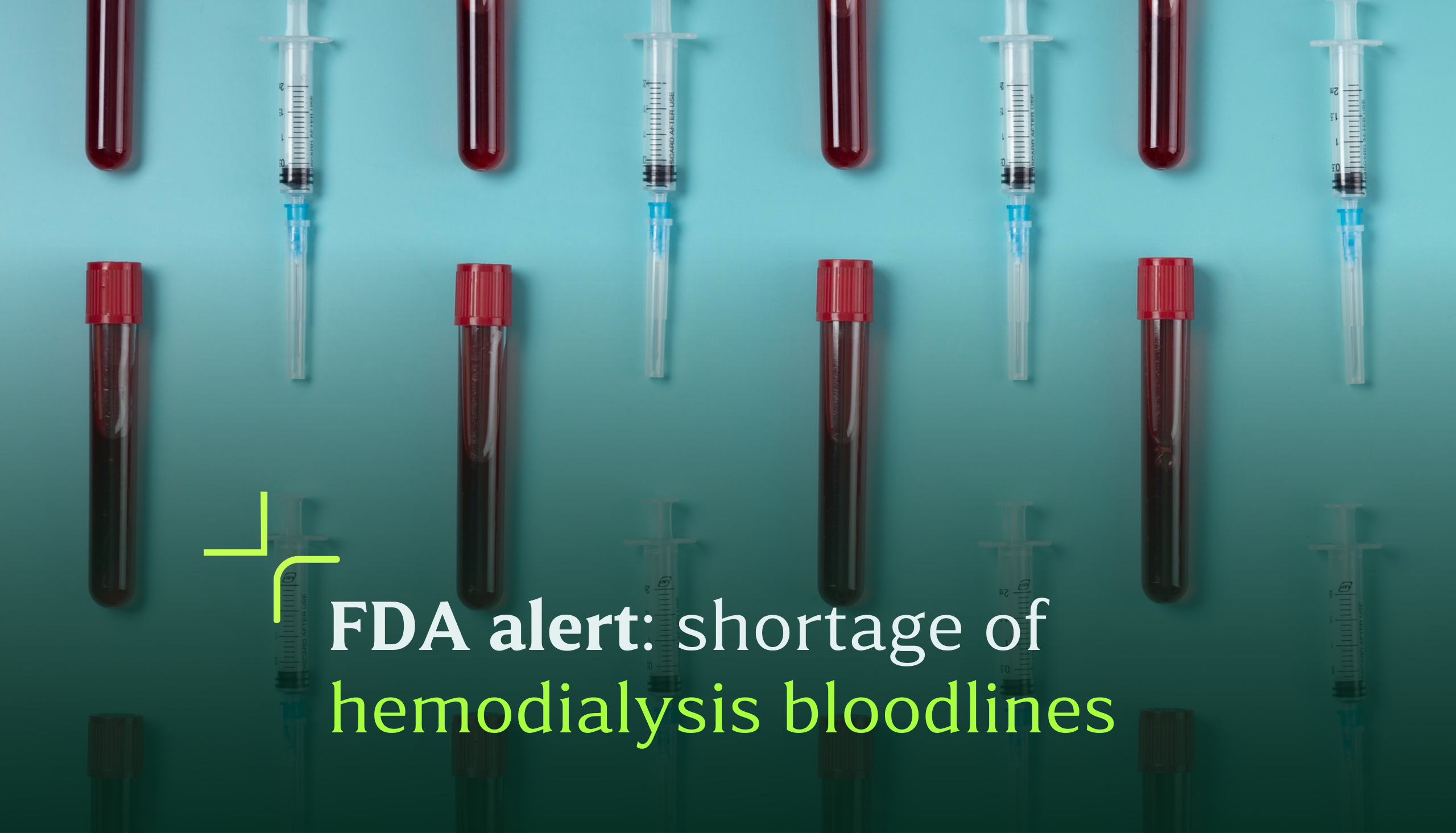Hemodialysis bloodlines shortage: FDA alert and clinical implications
Written by: Manuel Mateos CEO and Regulatory Affairs Director, CMC Medical Devices & Drugs S.L.
The U.S. Food and Drug Administration (FDA) has recently issued a communication to healthcare providers regarding an ongoing shortage of hemodialysis bloodlines, a critical component in both acute and chronic dialysis treatments. These devices, responsible for connecting a patient’s blood to the dialysis machine, play a central role in life-saving therapies for individuals with kidney failure.
This alert highlights the increasing pressure on the medical device supply chain, particularly within the hemodialysis sector, and underscores the need for clinical teams and institutions to prepare and adapt accordingly.
A growing concern for healthcare providers
According to the FDA, the shortage of hemodialysis bloodlines stems from production and supply disruptions involving multiple manufacturers. This situation is already impacting the availability of these devices across the U.S., and the agency expects the issue to persist through early fall 2025.
Such shortages pose a real risk to the continuity of care for patients requiring regular dialysis. In its official communication, the FDA encourages healthcare providers to assess their current inventory levels, consider conservation strategies, and ensure that dialysis treatments continue without interruption, even in the face of limited supplies.
Regulatory and operational impact
The inclusion of hemodialysis bloodlines in the FDA’s official Medical Device Shortage List reflects the seriousness of the situation. Product code FJK, used for these bloodlines, was officially added to the list on March 14, 2025. The FDA is actively working with manufacturers and suppliers to mitigate the impact, monitor the situation closely, and support the development of alternative solutions where necessary.
This development highlights the importance of maintaining regulatory awareness and being responsive to alerts and updates from health authorities. For manufacturers and distributors, the shortage also brings into focus the need for robust supply chain risk management and clear communication with healthcare providers.
To learn more about this alert and its implications, you can access the full FDA letter here.
If you’re a foreign manufacturer looking to distribute your devices in the U.S., having a reliable partner for FDA compliance is essential.
Learn more about our FDA Agent service and how we can help you stay compliant and informed in a rapidly evolving regulatory environment.
For more regulatory updates and insights, follow our blog or get in touch with our team.



